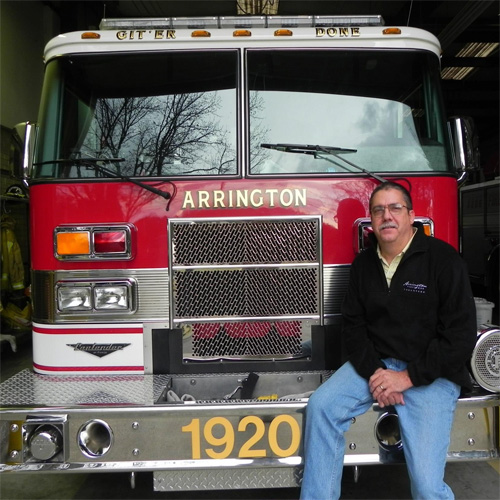I'm a licensed Aircraft Mechanic & Inspector with twenty five-plus years in the field. I've had a varied career so far, with time spent in the sheetmetal, mechanic, and inspection specialties. Most of my time is on heavy Boeing and McDonnell Douglas aircraft, of the passenger, cargo, and experimental type. This career isn't for everyone, but I enjoy it.
Please do NOT ask me to troubleshoot problems with your airplane, that is not what this Q&A is for.
It depends.
Depends on where you work; who you work for; and what type of equipment they are flying.
Aviation is a 365/24 industry, generally speaking. And somebody has to cover the 'crappy' shifts.
Heavy repair facilities tend to get stuck with a lot of crunch time overtime. When the planes are getting close to completion usually.
Flight line work will get hit with last minute overtime sometimes. When a plane breaks and you have to fix it before it can go.
Basically, unless you work in more of a shop environment, away from the flying part of aviation; then you will probably experience some level of unpredictability in your schedule.
You'll probably work weekends, at least sometimes.
There isn't a really straightforward answer to your question.
Naba, as an FAA licensed aircraft mechanic & inspector, who has worked primarily in the Mid-Western USA; I can really only answer you based on that experience.
If you plan on coming to the USA to get your Airframe & Powerplant licenses; I would recommend against large "Mechanic Factories" such as Emery Riddle. Choose a smaller school program. My Alma mater is the Lansing Community College aviation technology program, and I liked it very much, and it did not cost too much for a two year degree + my A&P. I can also recommend the aviation maintenance program up at Northern Michigan University; where you can get your A&P, and stick around for a four year degree as well. Those would be my personal recommendations.
If you meant going to some other country, then I'm afraid I cannot help you much.
If you meant becoming an aircraft mechanical engineer, in the respect of being the guy who designs the aircraft; then I'm really really not the guy to give you advice. I'm a mechanic. :D
Strictly speaking; I don't know. If you look in the maintenance manual for any given aircraft, you will find limits for dents. Depth, width, etc. These would be dents that do not have any structural damage of any other kind associated with them.
So, if you took a hammer and dented the airplane 'slightly' it may or may not be airworthy.
Would it fly? Probably; because it would take a terrific amount of surface deformation to ruin the aerodynamics completely.
But technically airworthy, is another matter.
I really can't say. I've never been to a real crash site before. From the pictures I've seen, you usually have one of two scenarios: Either there is nothing but little chunks of metal and debris everywhere, or there are several largish chunks of airplane (sometimes just one bent up airplane if it was really low speed). I do know what isn't very realistic. Having engines running after the crash, is pretty far fetched, such as was seen in the opening scenes of Lost and Cast Away. Maybe I've just avoided most plane crash movies.
Cruise Ship Officer
 Is the "women and children first" rule still in effect?
Is the "women and children first" rule still in effect?
Border Patrol Agent
 Do Mexican authorities help on THEIR side of the border?
Do Mexican authorities help on THEIR side of the border?
Firefighter
 What kind of shape do firefighters need to be in?
What kind of shape do firefighters need to be in?
I would list out several things I kind of wish I'd known when I started.
-Don't expect to get rich!
-Don't immediately go into debt with the tool truck guy. Believe it or not, your off brand rollaway box, and craftsman tools will work just as good as the preimium brands.
-Vet your spouse (or prospective one) for how he/she feels about you working long hours with little notice; or road trips of uncertain duration at the drop of a hat. Not every aviation job will entail things like that, so adjust your career accordingly, if you want to stay married.
-Wash your hands often, wear your personal protective gear (rubber gloves, face sheilds, ear protection) always.
-You are not invincible to chemicals or gravity.
-Learn how to find things in your maintenance manuals and IPC's.
-Learn the FAA regs that apply to you and what you are doing.
-Don't break the rules for a paycheck.
-We all started out fresh as a daisy, and knowing about as much. Don't forget that twenty years from now.
-The airplanes will never love you back.
The system I've seen installed is a satellite based system. A satellite antennae is installed on top of the aircraft, and then a wireless router is located somewhere in the cabin. So no, it doesn't use the same land based signals that your phone uses.
No, I certainly cannot travel for free anywhere. I, along with most other mechanics must pay our own way, just like the rest of the public.
Often, if you work for one of the major commercial air carriers, you can get discounts, or fly free on 'standby'. But, most mechanics do not work for those companies.
-OR-
 Login with Facebook
Login with Facebook (max 20 characters - letters, numbers, and underscores only. Note that your username is private, and you have the option to choose an alias when asking questions or hosting a Q&A.)
(A valid e-mail address is required. Your e-mail will not be shared with anyone.)
(min 5 characters)
By checking this box, you acknowledge that you have read and agree to Jobstr.com’s Terms and Privacy Policy.
-OR-
 Register with Facebook
Register with Facebook(Don't worry: you'll be able to choose an alias when asking questions or hosting a Q&A.)